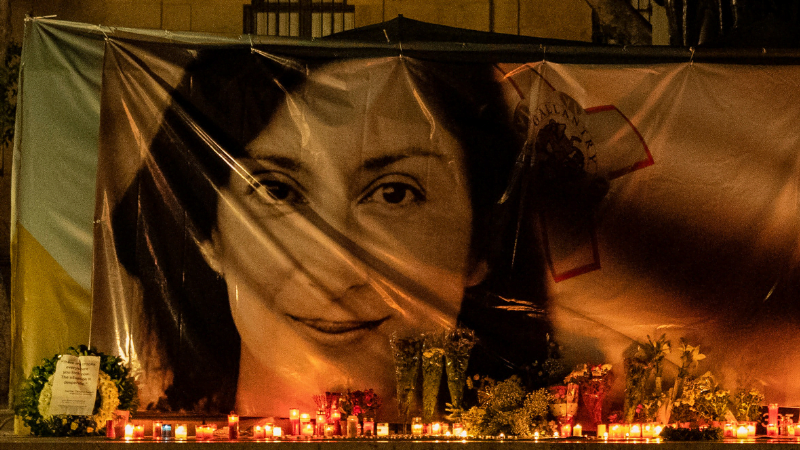Delegates at the United Nations Human Rights Council 40th Session (UN HRC 40) in Geneva have heard criticism of Maltese government for refusing to accept a public inquiry into the murder of Daphne Caruana Galizia.
More than 16 months after her murder, the Maltese authorities are yet to find the masterminds of “this heinous organised crime”, and have failed to bring them to justice,The Press Emblem Campaign (PEC) said.
The Caruana Galizia family have spoken out many times on the fact that they believe the investigation appears to be a “complete cover up” and demonstrates a lack of will to investigate the motive behind the assassination, as well as whoever ordered it.
While three individuals have been arrested for carrying out the bombing, those who gave the order for her to be murdered remain at large.
Prime Minister Joseph Muscat who said “no stone would be left unturned” after Caruana Galizia’s murder, also said there was “no need” to launch a public inquiry.
A total of seven female journalists were murdered in 2018, with 16 killed the year before, according to Reporters Without Borders that condemned the imprisonment of 27 female journalists, most of whom are in inhumane conditions.
Calling out countries such as Afghanistan, India, Saudi Arabia, Yemen, Mexico, and Columbia, the PEC said that women journalists were at very high risk. Facing public shaming, attacks on honour and reputation, threats and attacks in the private sphere, censorship, and online harassment, women journalists often face greater risks when exposing issues and challenging those in power.
The PEC called on all Members of the Human Rights Council to better protect the rights of women defenders, especially those working in the field of journalism.












